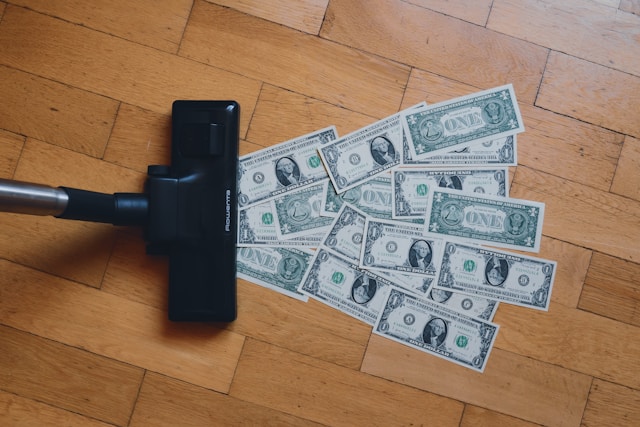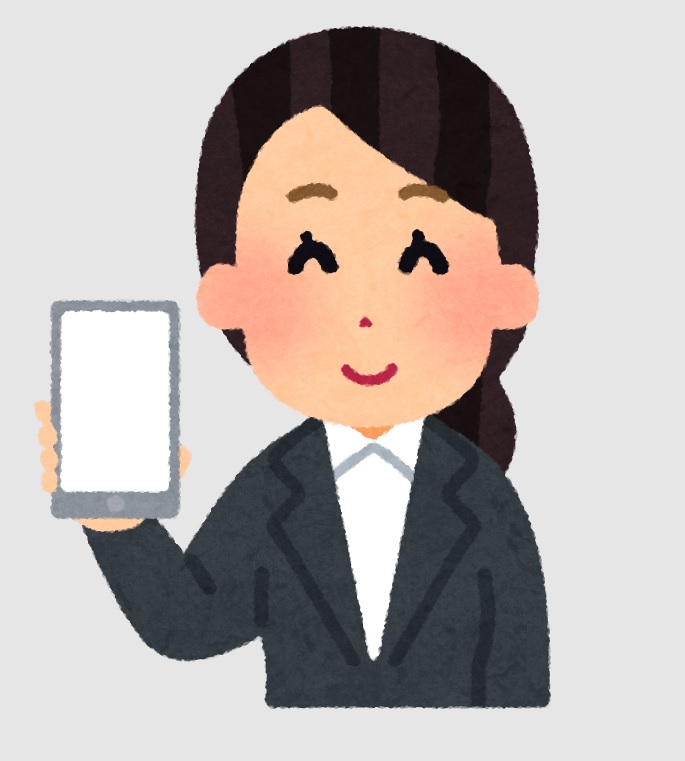「毎月の生活が楽になる|大手キャリアの借金地獄を断ち切れ!」
〜前回のつづき〜
●Q&A(つづき)

Q2.機種代金が残ってる場合はどうしたらいいですか?(つづき)
A.ややこしいのが
大手キャリアから
格安SIMに乗り換える場合は
どうなるのか?
ここがみんなわからない訳ですよね?
大手キャリアが
乗り換えられたくないから
色んな事をやってくるんです。

スマホの残債を
一括で支払う事になるんです。
2年掛けて
15万円を支払ってた訳ですけど
例えば
5万円とか残債が残ってるんだったら
その5万円を
一括で支払う事になるんですよね。
機種代だけ
毎月分割で来る場合とかも
いろいろいくつか
パターンはあるみたいですけど
基本的には一括で支払う事になる。
スマホの機種代金というものにおいては

乗りかえた所で
損も得もありません。
乗りかえて
損した気分になるのは
一括で
残債を支払わなければならないので
損したような気分になるだけ
なんですね。
要は
一括で支払うから
支払うお金が大きくなりますよね?
今までは
分割で支払えてたのが
一気に
大きなお金を
支払わなければならないから
損したような気分になるだけ
なんですね。
金額は小さいですけど
借金がある状態と
何も変わらないので

結局どこかで
払わないといけないんですよね。
なので別に損も得もない。
損したみたいな言い方を
3キャリアはしてきたりします。
一部の大手キャリアは
負担してくれてるじゃないか
という人もいます。
例えば

「10万円のうち3万円を負担してあげます」
みたいな。

「ウチで契約してくれて
このプランに入ってくれた場合
あなたの支払いは機種代金10万円のうち
3万円をウチの会社が負担してあげます。
あなたの支払いは10万円のうち
7万円でいいですよ♪」
みたいな。
半額の場合とか色々あります。
ただし途中で解約したら
ペナルティを請求するという
スタイルでした。

「ウチが負担していた分も含めて解約したら3万円分も請求しますよ」
みたいな。
こうされるから
解約しづらい訳ですよ。
これについてどういう事かというと
2年間で3万円得するために
毎月5千円

つまり
年間6万円損してるんですよ。
2年で3万円。
(あくまでも例としてですけど)
一年になおしたら
1万5千円ですけど。
一年間で
1万5千円得するために
一年間で6万円損してる
という事なんですよ。
結論からいうと
負担が大きいように思うけど
その大きな負担があっても
乗り換えた方がほとんどの場合得
なんですよね。
一括の支払いというのは
確かにシンドイですけど

毎月の生活が楽になるんですよ。
大手3キャリアで
スマホを買った段階で
すでにローンを組んでた
という事です。
iPhoneであれば
15万円ぐらいする訳です。
だからそれはもう
最初に借金をしちゃってるので
どうあがいても
どこかで借金を返さないと
いけないですよね。
ずっと
大手のキャリアで
契約しつづけるというのは
借金をずっと先延ばしにしてる
という事なんですよね。

「2年ごとに乗り換えたらお得!」
とか言ってますけど
新しいローンを組んでるだけです。
大体2年ぐらい経ってくると
古くなってくるので
交換したくなるじゃないですか。
そういう手法で
新しいローンを組んでるだけです。
〜〜〜つづく〜〜〜
Special Thanks college president Ryo.

●おまけ
≪≪Chat-GPTくんによる要約→perplexityちゃんによる文章まとめ≫≫
大手キャリアから格安SIMに乗り換える際、機種代金の残債が一括で支払う必要があるため、多くの人が困惑します。例えば、スマホの残債が5万円の場合、この金額を一括で支払わなければなりません。このため、乗り換え時に損した気分になることがありますが、実際には損得はありません。大手キャリアが提供する負担キャンペーンも、見かけ上の得に過ぎず、解約時にはペナルティが発生することがあります。
結局、格安SIMに乗り換えることで毎月の支払いが減少し、生活が楽になるのが大きな利点です。スマホ購入時点で既にローンを組んでいるため、大手キャリアで契約を続けることは借金を先延ばしにしているだけです。2年ごとの機種変更は新たなローン契約を意味し、実際には経済的な負担が増えることもあります。したがって、長期的には格安SIMへの乗り換えがほとんどの場合お得だと言えるでしょう。
Citations:
[1] https://www.showcase-tv.com/mobile/docomo-lump-sum-payment/
[2] https://www.benefon.com/softbank-cash-option/bulk
[3] https://www.softbank.jp/mobile/support/contract/charge-guide/payment/installment/
[4] https://www.softbank.jp/support/faq/view/10005
[5] https://www.au.com/support/faq/details/00/0000/000002/pg00000238/
[6] https://www.uqwimax.jp/mobile/support/faq/pages/pg00000238.html
[7] https://network.mobile.rakuten.co.jp/guide/replacement-program/pay-off/
[8] https://faq.ahamo.com/faq/show/256?site_domain=default
≪≪Chat-GPTくんによる英訳≫≫
~Continuation from the previous section~
【Q&A (continued)】
Q2. What should I do if I still owe money on my device? (continued)
A. The tricky part is when you’re switching from a major carrier to a budget SIM provider. This is where many people get confused, right?
Major carriers don’t want you to leave, so they come up with all sorts of tactics to prevent it.
For example, when you switch, you’ll need to pay off any outstanding balance on your phone in one lump sum.
Let’s say you’ve been paying off a ¥150,000 phone over two years. If you still owe ¥50,000, you’ll have to pay that ¥50,000 all at once.
While there are some cases where the remaining payments continue monthly, generally, you’ll need to pay the balance in full.
When it comes to the device cost, switching providers doesn’t really result in any gain or loss.
The feeling of loss comes from the fact that you have to pay the remaining balance all at once, which makes the amount feel much larger.
Up until now, you’ve been paying in small installments, so when you have to pay it all at once, it feels like a hit, but it’s really just a matter of perception.
In reality, having an outstanding balance on your device is no different from being in debt. Eventually, you’ll have to pay it off anyway.
So, switching providers doesn’t result in a real financial gain or loss.
Still, the three major carriers often try to frame it as a disadvantage.
Some people argue that certain major carriers provide financial support.
For example, a carrier might say, “We’ll cover ¥30,000 of the ¥100,000 device cost for you.”
Or, they might say, “If you sign up with us and join this plan, we’ll cover ¥30,000 of your ¥100,000 device cost, so you only need to pay ¥70,000.”
Sometimes, they even offer to cover half the cost.
However, if you cancel the contract early, they’ll charge you a penalty.
For instance, the carrier might say, “If you cancel, we’ll bill you for the ¥30,000 we covered.”
This makes it harder to cancel.
Here’s the situation: to save ¥30,000 over two years, you might end up paying an extra ¥5,000 per month, which adds up to ¥60,000 extra in one year.
So, in two years, you save ¥30,000 but end up losing ¥120,000.
If you break it down annually, you’re losing ¥60,000 to save just ¥15,000.
In conclusion, while the lump-sum payment may feel burdensome, switching to a budget SIM provider is usually more advantageous in the long run.
Paying off the balance all at once can be tough, but it will significantly lower your monthly expenses.
When you bought your phone from a major carrier, you essentially took out a loan. For example, an iPhone might cost around ¥150,000.
So from the start, you were already in debt, and eventually, you’ll have to pay it off.
Sticking with a major carrier means you’re just deferring that debt indefinitely.
The carrier might tell you, “If you switch every two years, you’ll save money!”
But in reality, all you’re doing is taking out a new loan.
After two years, your phone will feel outdated, and you’ll likely want to upgrade. And that’s how the carrier keeps you tied to a new loan each time.
Special Thanks OpenAI and Perplexity AI, Inc


